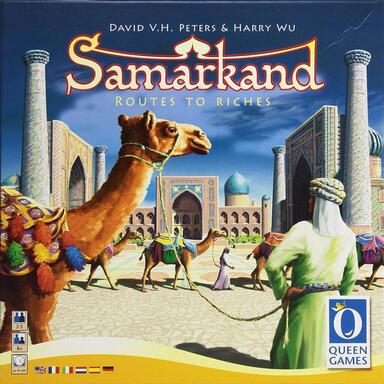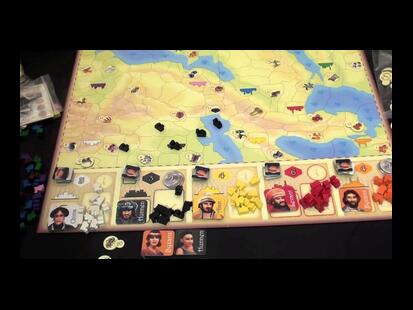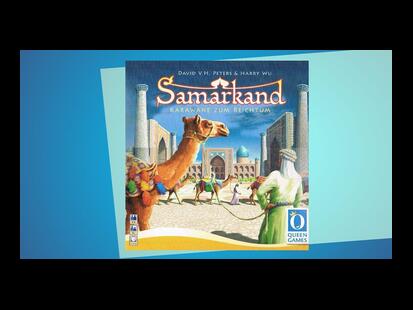In "Samarkand", players embody merchants whose best way to prosper is to marry one of the ten families of merchants on the set. Convoling and paying the dowry with a wealthy family helps to manage the camel caravans that will then be sent across the Middle East to acquire goods.
In turn, a player has the choice between two actions. First, to contract a new marriage (Ah, polygamy), pay the dowry necessary to the family, and draw cards of merchandise. Then, extend a commercial road with big camel (or dromedary if you want to quibble but maybe it's turkomans finally ...) to pick up tiles of goods on the shelf. When he reaches a box of goods, a player takes the tile that will earn a victory point and the player with the corresponding card has the opportunity to sell it for three dirhams or keep it to score victory points.
The salt of the game is found in the commercial relations that two families can make. When two caravans of different colors meet, they agree to trade together, the world is well done. Members of both families receive money and the player who provoked the deal retrieves a tile that will earn victory points at the end of the game.
The game continues until one family has established five business relationships or each family has established at least one business relationship. When this happens, the game stops immediately. Then report a victory point the recovered Relation tiles, the Merchandise tiles and the dirhams (one point for each). Merchandise cards kept can earn a lot more, up to four points if it's the same player who has the card and a camel on the right box. This can make up to eight points if he managed to place a second camel there.
Rule, Educational Sheet ... 2 Files Available2 Files Available
Download the rule for Samarkand: Routes to Riches or any other documents (scenarios, goodies, pedagogical sheet, erratum, ...). 2 PDF files are available. See all available files
Contents of the box : 1 game board, 20 "Family" tiles, 120 camels, 50 "Relationship" tiles, 33 "Goods" cards, 33 "Goods" tiles, 6 summary tables, 75 dirhams, 1 game rule, 1 cloth bag.





